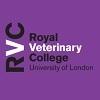Explore all the information on
Parasitic diseases in poultry
A parasite is an organism that lives in or on another organism (referred to as the host) and gains an advantage at the expense of that organism. The two types of internal parasites that affect poultry are worms and protozoa. Usually, low levels of infestation do not cause a problem and can be left untreated. Clinical signs of a parasite infestation include unthriftiness, poor growth and feed conversion, decreased egg production, and, in severe cases, death. Also, parasites can make a flock more susceptible to diseases or worsen a current disease condition. External parasites can also cause problems for small flock poultry producers and occasionally for large flock producers. These unwanted visitors can be brought into the poultry house by wild birds or new birds being added to the flock. All new birds should be checked for parasites before they are mixed with the original flock.
...
Comments : 0
Recommendations: 3
Introduction Interleukin 2 (IL2) and IL15 play key roles in the regulation of homeostasis and function of T cells and natural killer (NK) cells. The effects of these cytokines on target cells are mediated by their heterotrimeric receptors that consist of a specific a-subunit and two shared subunits, IL2 and IL15 receptor b (IL2/15Rb, CD122) and a common cytokine receptor γ (γ c ) [1,2]. Although the asubunits of the IL2 and IL15 receptors define the...
Comments : 0
Recommendations: 1
Introduction Arachnid mites are external parasites of chickens and turkeys. Dermanyssus gallinae, the Common Red Mite, feeds by sucking blood, mainly at night and may transmit fowl cholera and other diseases. Ornithonyssus bursae, the Northern Fowl Mite, spends its entire life cycle on the bird and can multiply more rapidly as a result.
Signs - Presence of gray to red mites up to 0.7...
Comments : 4
Recommendations: 2
Robert Beckstead (NC State University) discussed transmission, treatment and control of this disease, during IPPE 2020 in Atlanta, USA....
Comments : 2
Recommendations: 3
...
Comments : 0
Recommendations: 1
Makenly Coles (University of Arkansas) discussed the results of her research regarding this drug as an option to control disease incidence, during IPPE 2020 in Atlanta, USA....
Comments : 0
Recommendations: 0
Introduction Avian coccidiosis is caused by seven species of Eimeria protozoa (E. acervulina, E. maxima, E. tenella, E. mitis, E. necatrix, E. praecox, and E. brunetti) that differ in pathogenicity and immunogenicity [1,2]. The life cycles of all Eimeria species are of the monoxenous sporozoan type. Generally, infection develops following ingestion of sporulated oocysts and release of sporozoites, which subsequently invade intestinal epithelial cells. Through asexual...
Comments : 0
Recommendations: 2


Effective Solutions to Manage Poultry Heat Stress for Better Health and Farm Productivity
Suggested link
Christine Vuong (University of Arkansas) discussed possible prophylaxis to ameliorate blackhead disease in poultry, during the 8th Symposium on Gut Health in Production of Food Animals in St. Louis, USA....
Comments : 0
Recommendations: 0
Introduction Coccidiosis is a major global veterinary health problem impacting on the production of domesticated sheep, cattle, poultry and even fish. It is a particularly problematic disease in chickens (due to their intense rearing conditions), costing the industry £38 million per year in the UK alone and, extrapolating from this, over 2 billion US dollars to the world’s farmers and poultry industries annually [1]. It is caused by various species of the genus,...
Comments : 0
Recommendations: 1
Coccidiosis of chickens, one of the most costly diseases affecting the poultry industry worldwide, is caused by infection with one or more of 7 species of the intracellular protozoan parasite Eimeria [1,2]. Eimeria infections occur when susceptible chickens ingest viable sporulated oocysts from contaminated litter. The ingested oocysts invade the intestinal epithelium in a region-specific manner, causing variant pathogenicity in poultry and ranging from reduced feed conversion, hemorrhagic...
Comments : 0
Recommendations: 0
Introduction Coccidiosis causes a great economic loss in the poultry industry due to high rate of morbidity and mortality, sub optimal growth and conversion efficiency and loss of egg production (1). Mortality is mostly marked in caecal form of the disease in young chicks whereas morbidity is well documented in the intestinal form of the disease in adult birds. Etiology The disease is caused by a protozoan parasite...
Comments : 16
Recommendations: 0
Insects (ticks, mites, fleas, lice etc.) nuisance is not a new problem and well known to everyone since old age especially in the animals. Talking about cattle Rhipicephalus (Boophilus) microplus is considered as one of the...
Comments : 0
Recommendations: 2
Grace Albanese (University of Georgia) explained this method to analyze samples and identify Eimeria species, during IPPE 2019 in Atlanta, USA....
Comments : 0
Recommendations: 2
Background Seven species of the genus Eimeria (Apicomplexa, Coccidia) cause chicken coccidiosis, a disease with a huge economic impact in the poultry industry. Disease pathology is characterised by diarrhoea, malabsorption and for some species haemorrhage, and has a severe impact on animal welfare, efficiency of feed conversion and weight gain. Eimeria parasites disseminate readily through flocks via the oral-faecal route and are highly prevalent throughout the world [1]....
Comments : 0
Recommendations: 2
Damer Blake (Royal Veterinary College) discussed interactions with the parasite Eimeria, during the 1st PoultryUniverse Coccidiosis Congress in Curitiba, Brazil....
Comments : 1
Recommendations: 7
I am a doctor in Pakistan related to poultry feed and I mostly check poultry farms. I have been facing coccidiosis problem from 4 to 5 months in the field. There is mostly litter dry and climate in pakistan is mostly dry. But my poultry farmers face the coccidiosis problem in three or four times during 42 days of flock. This causes great economic losses to them. Mostly I use sulfaquinoxaline or toltrazuril salt in water and clopidol in feed to control and treat coccidiosis but sometimes...
Comments : 37
Recommendations: 0
Coccidiosis is a realistic problem and one of the most important diseases of poultry worldwide. It is caused by a protozoan parasite known as Eimeria that invade the cells of the poultry intestine. Species of coccidia which commonly affect poultry are Eimeria tenella , E. acervulina , E. necatrix ,...
Comments : 2
Recommendations: 2
Introduction The Brazilian production of chicken meat has increased considerably and the country is now the world's third largest producer and leader in exports (RODRIGUES et al., 2014). The growing demand for animal protein stimulates a rapid expansion of production systems and increasing the stocking density, favoring the multiplication and spread of pathogens. Outdoor poultry breeding systems that enable lower population density and higher animal welfare does not exclude...
Comments : 0
Recommendations: 0
I am professor at Western Paraná State University (Unioeste, Cascavel, PR, Brazil). I would like to talk about alternative control of the lesser meal worm and the poultry red mite, mainly with biocontrol agents and mineral dusts....
Comments : 4
Recommendations: 0








.mp4&w=3840&q=75)














.jpg&w=3840&q=75)

.jpg&w=3840&q=75)










